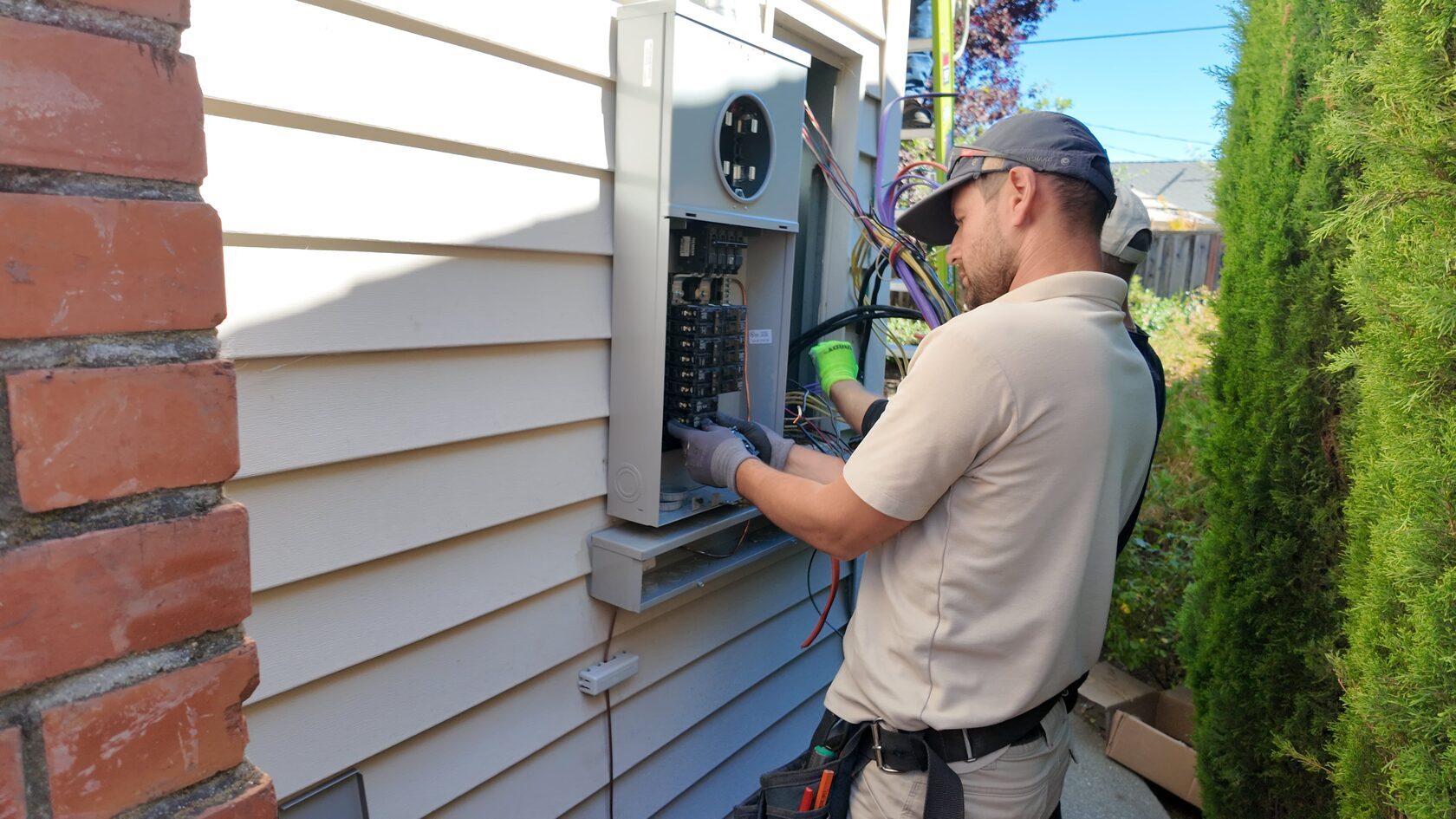Can Your Electrical Panel Handle New Appliance Installations?
Bringing home new appliances—whether it’s a high-capacity refrigerator, a washer and dryer, or an EV charger—is always exciting. But these powerful additions can significantly increase your home’s electrical demand. Can your electrical panel handle the load? If you’re unsure, this guide will help you assess your panel’s capacity, recognize signs that it might need an upgrade, and outline steps to take if it falls short.
What is an Electrical Panel?
Often called a breaker box or fuse box, the electrical panel is the heart of your home’s electrical system. It distributes power from the grid to circuits throughout your house, ensuring that each area or device gets the energy it needs.
Key Components:
- Circuit Breakers: Protect against overloads by cutting off power to affected circuits.
- Bus Bars: Distribute electricity to individual breakers.
- Main Disconnect Switch: Shuts off power to the entire home during emergencies.
Why Electrical Panel Capacity Matters
Common Capacity Ratings:
- 100 Amps: Found in older homes but inadequate for modern households.
- 150–200 Amps: Ideal for most modern homes with multiple appliances.
- 400 Amps or More: Necessary for homes with extensive electrical needs like workshops, pools, or multiple HVAC systems.
Risks of Overloading Your Panel:
- Frequent breaker trips.
- Damaged wiring from overheating.
- Reduced efficiency or malfunctioning of appliances.
- Increased risk of electrical fires.
Signs Your Electrical Panel May Need an Upgrade
Look for these red flags:
- Frequent breaker trips, especially when running multiple appliances.
- Flickering or dimming lights when appliances turn on.
- Unusual buzzing sounds or burning smells near the panel.
- Dependence on extension cords or power strips due to insufficient outlets.
- An old panel with less than 100-amp capacity.
- Plans to install high-demand appliances like an EV charger, hot tub, or central air conditioning.
How to Evaluate Your Electrical Panel
Step 1: Identify Panel Capacity
Locate the main breaker—it should display a number indicating capacity (e.g., 100 amps or 200 amps).
Step 2: Calculate Current Load
- List all major appliances and their wattages.
- Convert wattage to amps using the formula: Amps = Watts ÷ Voltage. Most household devices run on 120V; larger ones may use 240V.
- Add up total amperage to see if your panel has room for additional appliances.
Step 3: Account for New Appliances
Add the amperage of any planned new appliances to your total. Avoid exceeding 80% of your panel’s maximum capacity to maintain a safety buffer.
When to Upgrade Your Electrical Panel
An upgrade is usually needed in the following scenarios:
- Installing high-demand appliances like electric water heaters or EV chargers.
- Renovating or adding to your home.
- Persistent electrical issues like frequent breaker trips.
- Switching to solar power or smart home systems.
Steps to Upgrade Your Electrical Panel
- Consult a Licensed Electrician: Get a professional assessment of your home’s electrical system.
- Choose the Right Panel Size:
- 200 amps for standard modern homes.
- 400 amps for larger properties with extensive demands.
- Obtain Permits and Inspections: Compliance with local codes is crucial; your electrician will handle this.
- Plan for Future Needs: If you anticipate adding more appliances or upgrading to smart technology, select a panel with extra capacity.
Tips for a Safe Upgrade
- Evaluate Your Entire Electrical System: Older wiring may also need upgrading.
- Upgrade Outlets: Appliances like EV chargers may require specialized outlets.
- Install Surge Protection: Protect sensitive electronics with a whole-house surge protector.
- Label Your Panel: Clearly mark breakers for easy troubleshooting.
Benefits of Upgrading Your Electrical Panel
- Enhanced Safety: Reduces fire risks and prevents overload damage.
- Improved Efficiency: Ensures smooth operation of appliances.
- Increased Home Value: Modern electrical systems are a strong selling point.
- Future-Ready: Accommodates smart tech and renewable energy systems.
Conclusion
When adding new appliances, ensuring your electrical panel can handle the increased load is essential for safety and reliability. By evaluating your panel’s capacity, watching for signs of overload, and consulting a licensed electrician, you can protect your home and enjoy your appliances without worry.
If you’re unsure about your panel’s capabilities, contact us today. A professional evaluation is a small investment in your home’s safety and long-term functionality!
